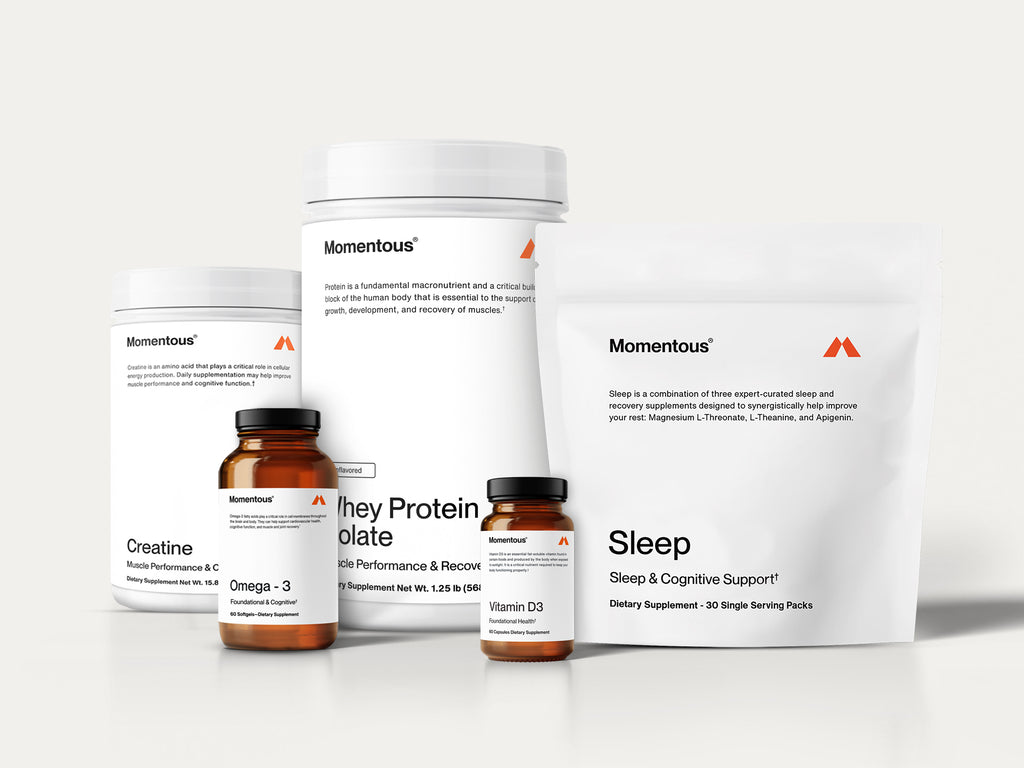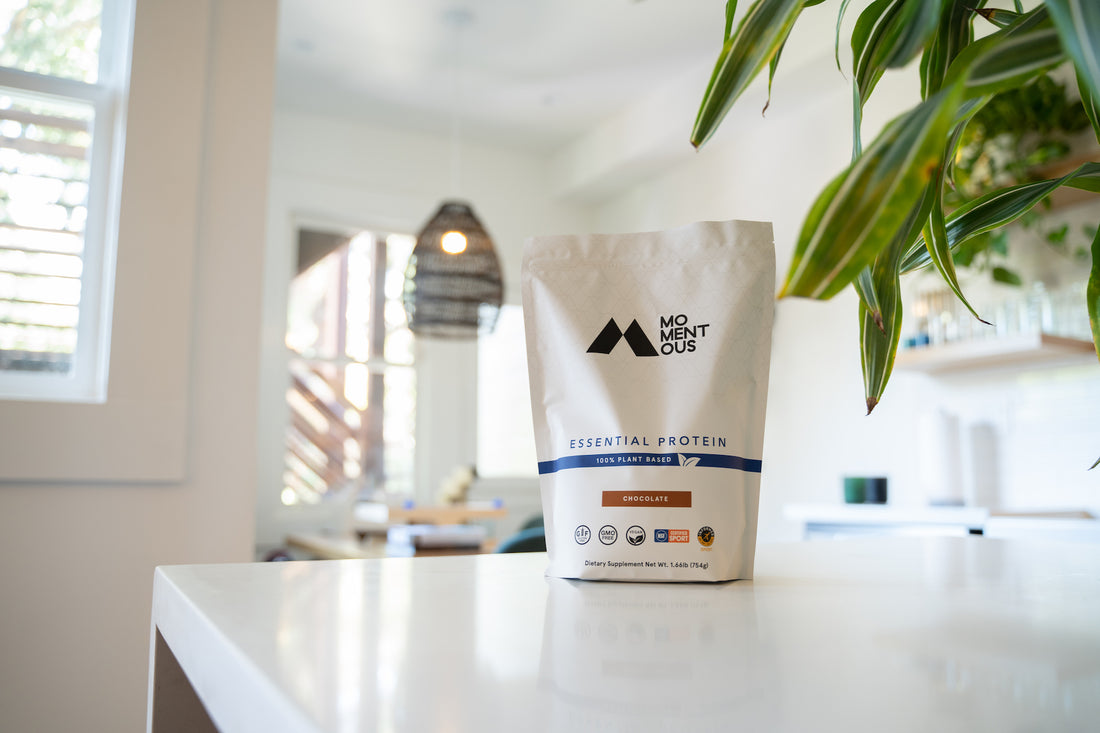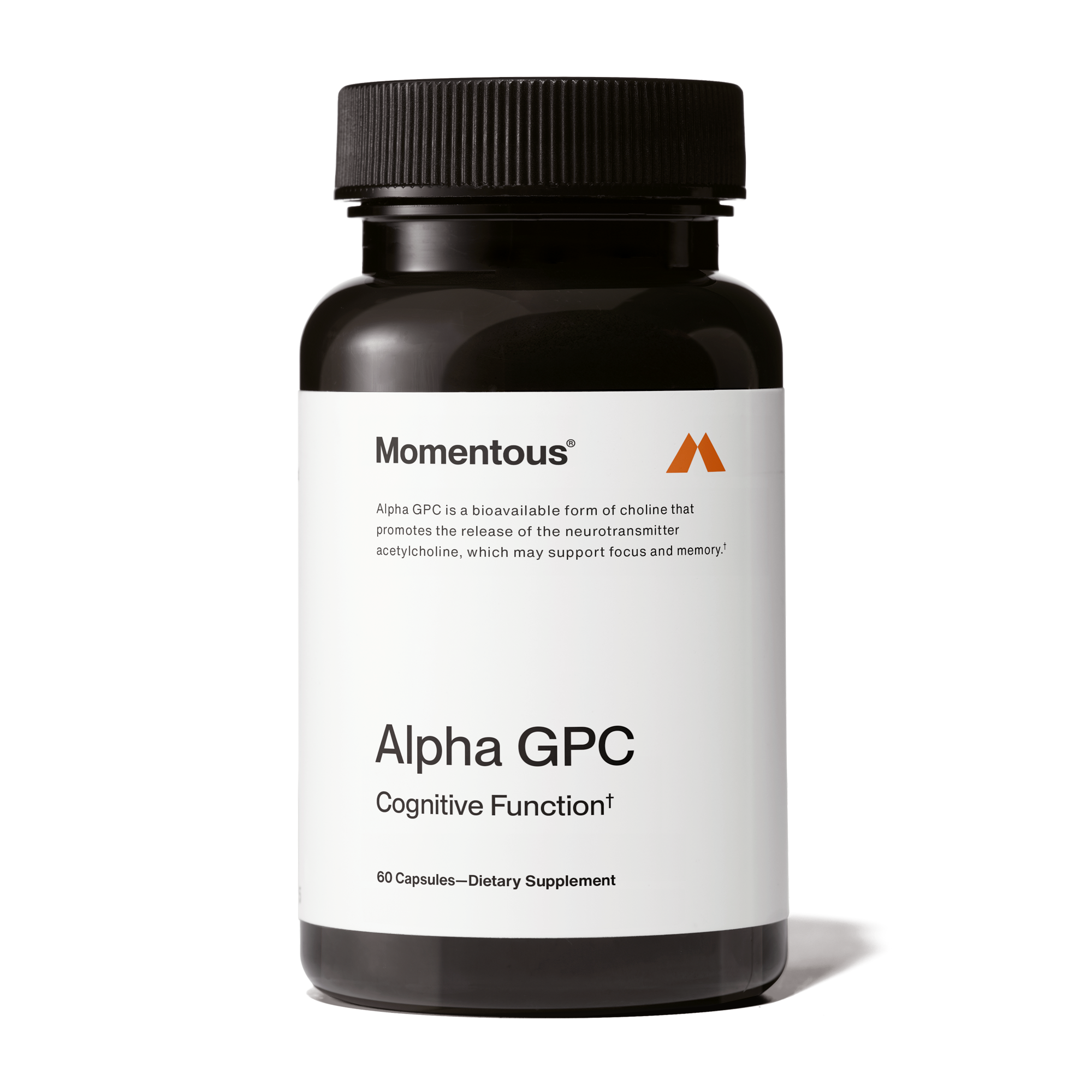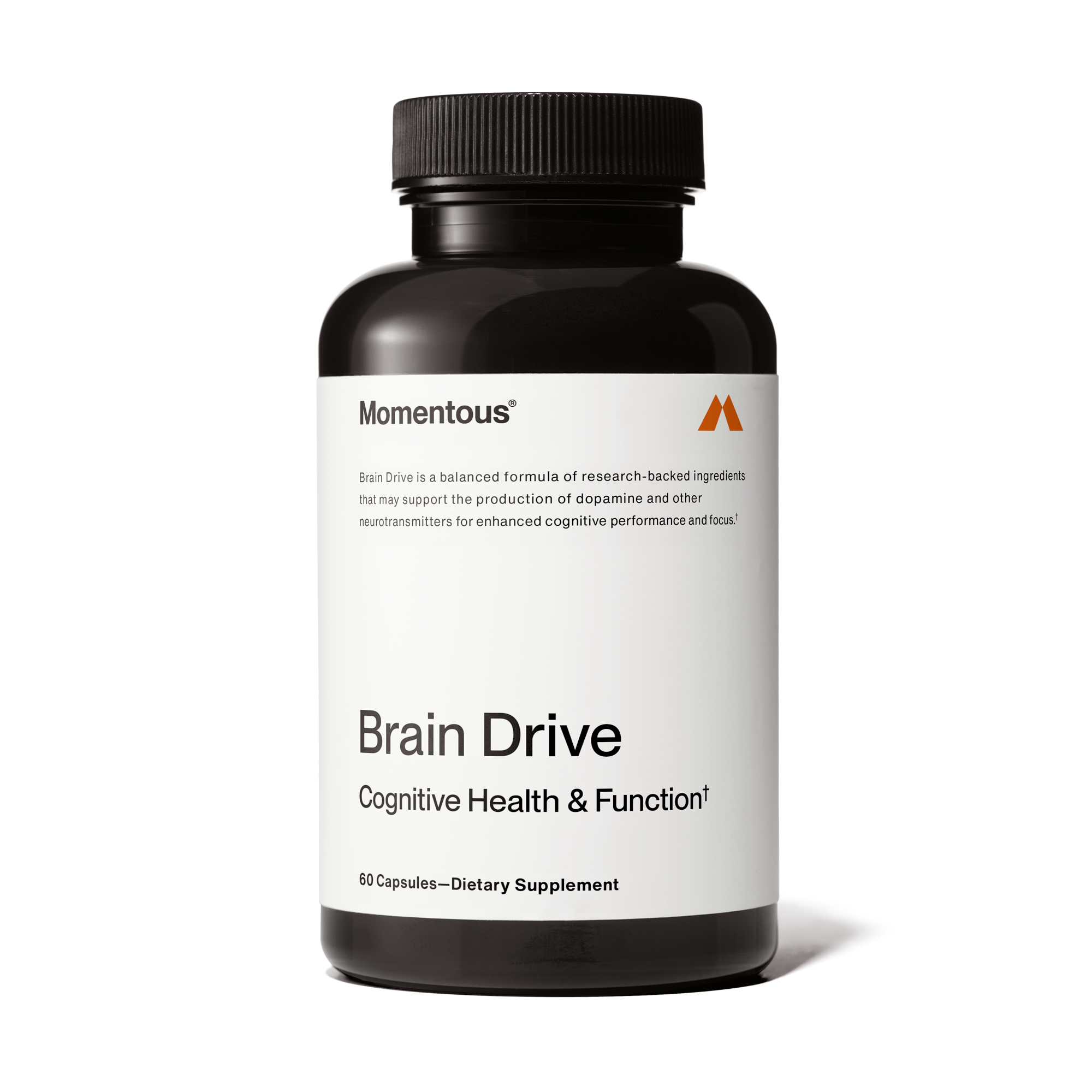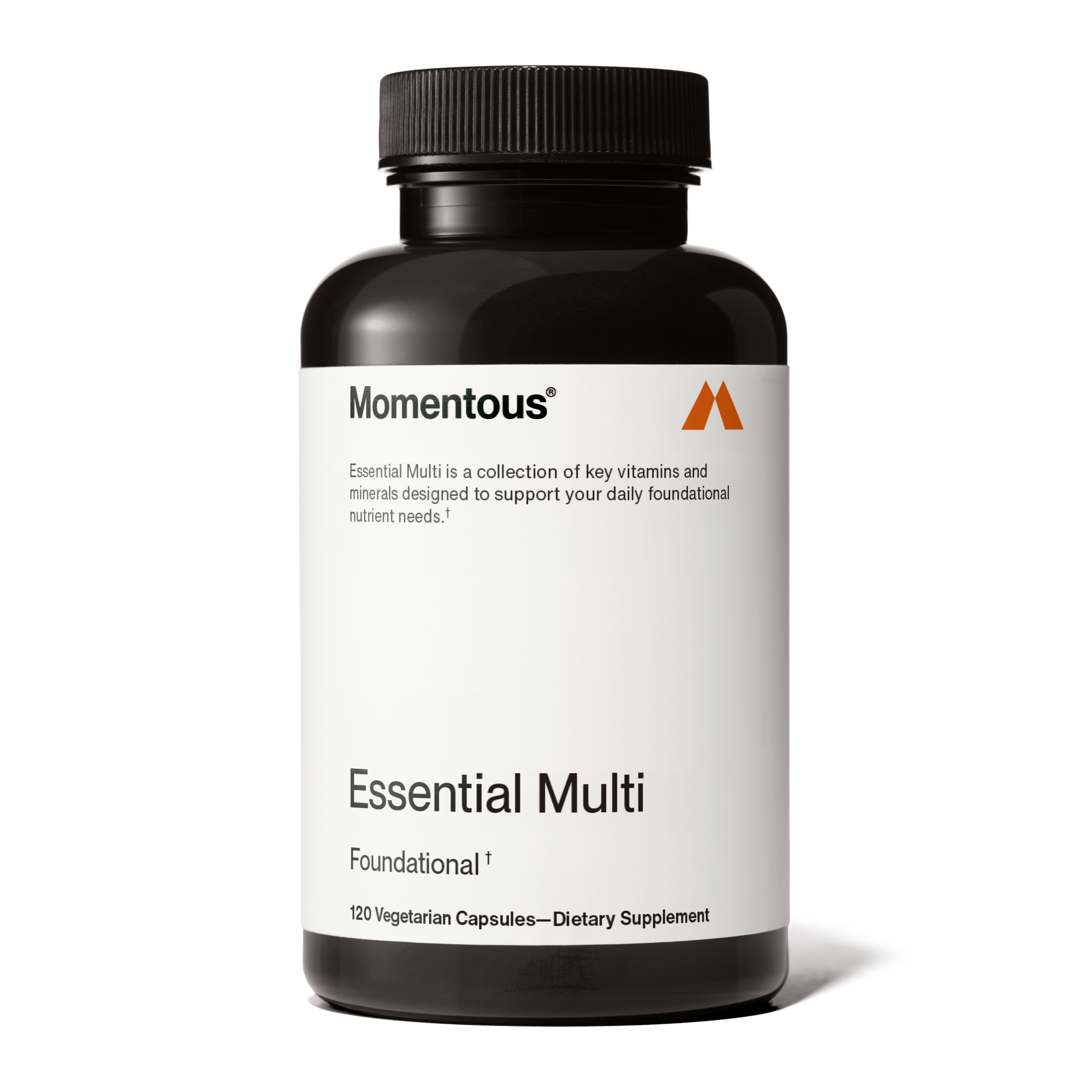Cognitive Function
Cognitive Health, Cognitive Function
Foundational Health
Plant based diets are becoming more and more common in both professional sports and for those looking to optimize their health. Plant protein has risen in popularity as well; but how and when should you supplement with a plant-based protein powder? In this piece, we’ll share some insight into why some of our athletes use plant-protein, how and when to use this supplement effectively, what makes a good plant protein powder.
Why Should You Take Plant-Based Protein Powder?
One of the main reasons that you might want to try plant-based protein powder is if you’re allergic or intolerant to dairy. It’s the second most common food allergy among American adults and children. In which case, whey protein isn’t an option and you need to find an alternative that can still provide a full amino acid profile.
Like more and more pro athletes, NFL tight end Kyle Rudolph regularly gets blood work done by a lab to see which macro and micronutrients he absorbs well, those he doesn’t, and to identify any deficiencies, allergies, or intolerances. The results of one test panel showed that he has a sensitivity to whey, so Kyle decided to switch to Momentous Essential pant-based protein to fuel his performance and aid recovery after practices, games, and weight room sessions.
“Trying to find a plant-based protein that’s good for you and tastes halfway decent was near impossible,” Kyle said. “And then Uye [Vikings head strength and conditioning coach and Momentous Performance Engineer Mark Uyeyama] recommended Esstential Plant-based Protein from Momentous. I tested that, tried it out, and I’ve fallen in love with it. With protein, it’s hard to find something that is good for you and tastes good too. So when you hit both of those, you’ve got a great product.”
Another reason to use plant-based protein daily is if you follow a vegan diet. Climber Alex Honnold, whose landmark ropeless climb of Yosemite’s 3,200-foot El Capitan is the focus of the Oscar-winning documentary Free Solo, follows a plant-based diet as part of his commitment to protect the planet. When he needs to supplement his protein intake to recover from grueling climbs and hangboard sessions that would leave mere mortals quivering, Alex puts a scoop of Momentous Essential Plant-Based protein in his smoothies.
“Of all the adjustments I’ve tried in my nutrition, protein drinks have had the biggest effect on my recovery at the end of a workout,” Alex said. “When I’m getting close to my limits or really trying my hardest, a dialed-in diet represents that extra something that I need. I like the attention to detail behind Momentous. The ingredients are well sourced and relatively simple, so that I actually understand what I’m drinking. And it tastes great, which I consider a big plus. It’s a pleasure to drink.”
Not All Plant-Based Protein Supplements Are Created Equal
There are thousands of plant-based protein powder options on the market. Unfortunately, they vary dramatically in quality, purity, and efficacy. Many companies opt to use cheap, low-grade ingredients like wheat and soy which, according to a study published in the Journal of Nutrition, “results in a lower muscle protein synthetic response when compared with several animal-based proteins.”[i]
In contrast, Momentous was determined to create a plant-based protein that would meet the needs of elite athletes and active, everyday folks and be a viable alternative to our gold standard grass-fed whey. After consulting with our team of Performance Engineers, which includes the likes of San Francisco 49ers coordinator of nutrition Jordan Mazur and Minnesota Twins dietician Rasa Troup, we settled on combining two high-end ingredients: pea and rice protein.
Together, these premium sources provide all nine essential amino acids, including a higher level of leucine than is found in most plant-based protein options. The result is a fast-mixing, great-tasting blend that provides everything you need to build muscle, recover between training sessions, and keep pace with your fast-paced lifestyle. An added bonus? Momentous plant-based proteins are guaranteed to be free of contaminants and PEDs by NSF Certified for Sport® and Informed Sport.
Getting More Protein in a Dairy and Meat-Free Diet
A common knock on plant-based proteins is that unlike meat, dairy, and fish, they’re incomplete sources, which means that they don’t contain the nine essential amino acids that the human body cannot produce on its own and therefore needs to come from food or supplements. However, this is a somewhat short-sighted view, as plant-powered athletes like Scott Jurek have become adept at combining foods to create a full amino acid profile. You can achieve this either in individual meals or by simply including a wide variety of plant-based proteins in your diet. Ways to do so include:
1) Add a handful of pumpkin seeds or sliced almonds to your morning muesli
2) Fill corn tortillas with beans for a lunchtime burrito
3) Pour a tofu curry over rice or quinoa for dinner
4) Snack on a healthier version of the classic PB+J sandwich, using organic nut butter on sprouted grain toast with an all-fruit jam or mashed berries.
There is scientific evidence to support such an approach. Publishing their findings in Nutrients, a team of French researchers noted that, “combining various plant-based protein sources like cereals and legumes in the same food could improve essential amino acids composition to help meet the body’s needs.”[ii]
How to Get the Most from Plant-Based Protein Powder
We just shared some ideas for combining plant-based proteins in your daily meals. You can also boost your overall protein intake – which is crucial for adding and maintaining muscle mass, recovering between workouts, preserving joint health, and more – by adding plant-based protein into your daily nutritional routine. Here are three simple ways to do so:
1) Put a scoop of Momentous Essential Plant-Based Protein in your morning smoothie
2) Stir another scoop into a bowl of oats in the evening
3) Drink a shake that includes plant-based protein powder right after you work out
The latest science suggests that getting 20 grams of protein within 30 minutes of finishing your training will help improve acute recovery whether you’re a power or endurance athlete (or, for that matter, a weekend warrior wanting to maximize your training gains). A study published in the journal Sport compared a group that supplemented with pea protein after high-intensity functional training and a second set of participants who used whey protein. After eight weeks, the authors concluded, “whey and pea proteins promote similar strength, performance, body composition, and muscular adaptations.”[iii]
The takeaway? Whether you’re trying to fuel elite performance, power a healthy, active lifestyle, or supplement a meat and dairy-free diet, you should take a second look at plant-based protein powder.
[i] Stephan van Vliet et al, “The Skeletal Muscle Anabolic Response to Plant- versus Animal-Based Protein Consumption,” The Journal of Nutrition, September 2015, available online at https://pubmed.ncbi.nlm.nih.gov/26224750/.
[ii] Insaf Berrazaga et al, “The Role of the Anabolic Properties of Plant- versus Animal-Based Protein Sources in Supporting Muscle Mass Maintenance: A Critical Review,” Nutrients, available online at https://www.ncbi.nlm.nih.gov/pmc/articles/PMC6723444/.
[iii] Amy Banszek et al, “The Effects of Whey vs. Pea Protein on Physical Adaptations Following 8-Weeks of High-Intensity Functional Training (HIFT): A Pilot Study,” Sport, January 2019, available online at https://www.ncbi.nlm.nih.gov/pmc/articles/PMC6358922/.
